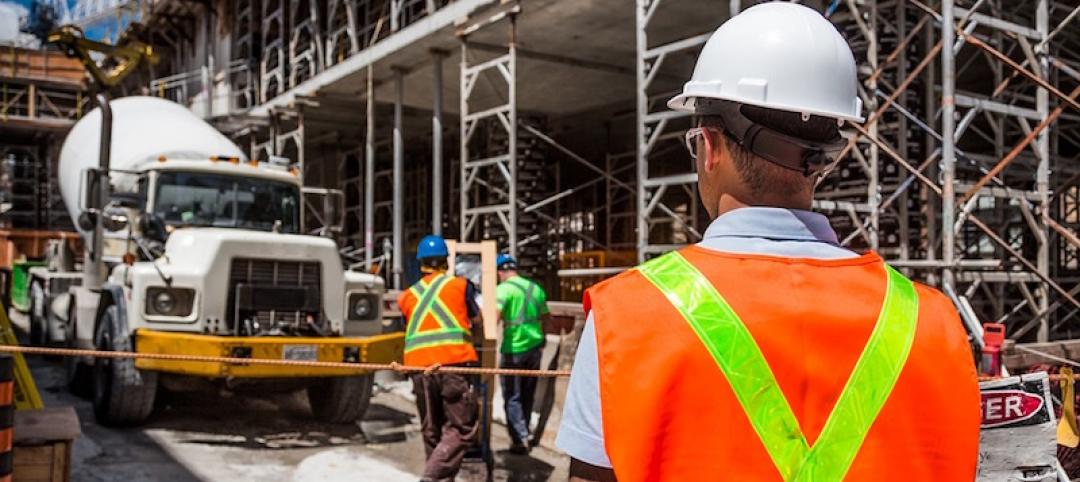Construction employment in May remained below the April level in 40 states and the District of Columbia, according to an analysis by the Associated General Contractors of America of government employment data released today. Association officials said skyrocketing materials prices and excessive delays in receiving key construction supplies were holding back the industry’s recovery.
“Today’s numbers show that impacts from the pandemic on demand for projects and on materials costs and the supply chain are weighing down construction in most parts of the country,” said Ken Simonson, the association’s chief economist. “In the few states where industry employment has topped the pre-pandemic levels of February 2020, most gains are likely attributable more to demand for homebuilding and remodeling than to most categories of nonresidential building and infrastructure projects.”
From April to May, construction employment decreased in 40 states and D.C., increased in only eight states, and held steady in Maryland and Utah. The largest decline over the month occurred in New York, which lost 5,900 construction jobs or 1.6%, followed by Illinois (-5,600 jobs, -2.5%) and Pennsylvania (-3,300 jobs, -1.3%). The steepest percentage declines since April occurred in Vermont (-3.9%, -600 jobs), followed by Maine (-3.5%, -1,100 jobs) and Delaware (-3.0%, -300 jobs).
Florida added the most construction jobs between April and May (3,700 jobs, 0.6%), followed by Michigan (1,600 jobs, 0.9%) and Minnesota (1,200 jobs, 0.9%). Oklahoma had the largest percentage gain for the month (1.3%, 1,000 jobs), followed by Minnesota and Michigan.
Employment declined from the pre-pandemic peak month of February 2020 in 42 states and D.C. Texas lost the most construction jobs over the period (-49,100 jobs or -6.3%), followed by New York (-45,200 jobs, -11.1%) and California (-30,800 jobs, -3.4%). Wyoming recorded the largest percentage loss (-15.3%, -3,500 jobs), followed by Louisiana (-15.1%, -20,700 jobs) and New York.
Among the eight states that added construction jobs since February 2020, the largest pickup occurred in Utah (5,000 jobs, 4.4%), followed by Idaho (3,400 jobs, 6.2%) and South Dakota (1,200 jobs, 5.0%). The largest percentage gain was in Idaho, followed by South Dakota and Utah.
Association officials noted that cost increases and extended lead times for producing many construction materials are exacerbating a slow recovery for construction. They urged the Biden administration to accelerate its timetable for reaching agreement with allies on removing tariffs on steel and aluminum, and to initiate talks to end tariffs on Canadian lumber.
“Federal officials can help get more construction workers employed by removing tariffs on essential construction materials such as lumber, steel and aluminum,” said Stephen E. Sandherr, the association’s chief executive officer. “These tariffs are causing unnecessary harm to construction workers and firms, as well as to the administration’s goals of building more affordable housing and infrastructure.”
View state February 2020-May 2021 data, 15-month rankings, 1-month rankings.
Related Stories
Market Data | Aug 29, 2017
Hidden opportunities emerge from construction industry challenges
JLL’s latest construction report shows stability ahead with tech and innovation leading the way.
Market Data | Aug 28, 2017
U.S. hotel construction pipeline is up 7% year-over-year
For the economy, the rate of growth may be low but it’s running on all cylinders.
Market Data | Aug 23, 2017
Architecture Billings Index growth moderates
“The July figures show the continuation of healthy trends in the construction sector of our economy,” said AIA Chief Economist, Kermit Baker.
Architects | Aug 21, 2017
AIA: Architectural salaries exceed gains in the broader economy
AIA’s latest compensation report finds average compensation for staff positions up 2.8% from early 2015.
Market Data | Aug 20, 2017
Some suburban office markets are holding their own against corporate exodus to cities
An analysis of mortgage-backed loans suggests that demand remains relatively steady.
Market Data | Aug 17, 2017
Marcum Commercial Construction Index reports second quarter spending increase in commercial and office construction
Spending in all 12 of the remaining nonresidential construction subsectors retreated on both an annualized and monthly basis.
Industry Research | Aug 11, 2017
NCARB releases latest data on architectural education, licensure, and diversity
On average, becoming an architect takes 12.5 years—from the time a student enrolls in school to the moment they receive a license.
Market Data | Aug 4, 2017
U.S. grand total construction starts growth projection revised slightly downward
ConstructConnect’s quarterly report shows courthouses and sports stadiums to end 2017 with a flourish.
Market Data | Aug 2, 2017
Nonresidential Construction Spending falls in June, driven by public sector
June’s weak construction spending report can be largely attributed to the public sector.
Market Data | Jul 31, 2017
U.S. economic growth accelerates in second quarter; Nonresidential fixed investment maintains momentum
Nonresidential fixed investment, a category of GDP embodying nonresidential construction activity, expanded at a 5.2% seasonally adjusted annual rate.
















